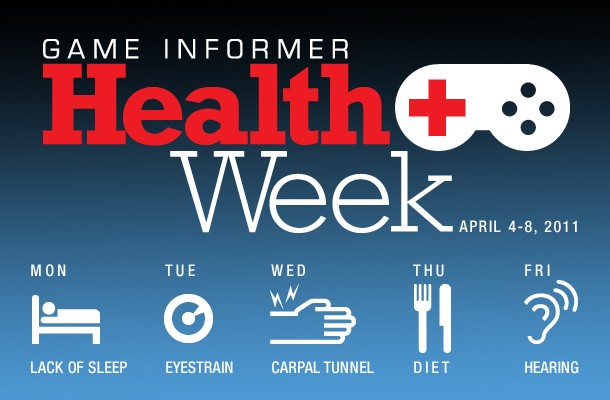Food Fight: Maintaining A Healthy Diet While Gaming

Gamers are as diverse as the world we live in, but there is one sure thing that we all face: we all need to eat. Unfortunately, navigating our way through America’s fast food lifestyle can be as dangerous as a Call of Duty: Black Ops tournament. We sat down to chat with Dr. Robert Jeffery, director of the University of Minnesota’s Obesity Prevention Center and gained some insights that might help gamers make better dietary choices. You may have snoozed through health class, but pay attention now if you want some quick tips on how to combat diabetes, heart disease, and obesity.
A stereotypical gamer’s diet might contain an overabundance of sugars, salts, and caffeine. What are the health risks associated with this kind of diet?
“There is very good evidence that there is a strong relationship between drinking sugar sweetened beverages and gaining weight, so if a gamer is not on a healthy diet or getting enough exercise they might face obesity,” says Jeffery. The dangers of obesity included an increased risk of high blood pressure, diabetes, cancer, and an overall shorter life expectancy.
Excessive soda consumption can result in high blood sugar, which can lead to faintness, a rapid heart rate, and dehydration. The acids in most sodas have been known to dissolve the calcium from tooth enamel, while an excess of caffeine strips the calcium from our bones and may lead to irritability, restlessness, tension, insomnia, or other gastrointestinal disturbances.
Meanwhile, an overabundance of sodium can cause high blood pressure and potassium deficiency, which can lead to cramps and other heart problems.
What are some healthy snack alternatives?
“I would suggest the same kind of foods that would be good for anyone to eat: lots of fruits and vegetables and a diet of relatively low fat foods,” says Jeffery.
Whole grain foods are high in fiber, which help slow the absorption of sugars, and can reduce one’s risk of cancer, diabetes, and heart disease. Dried fruits make a healthy snack because they are high in energy, low in fat, and have a long shelf life. Other good snack options would be oatmeal, almonds, and yogurt.
What kinds of food would actually benefit a gamer; increase their reflexes, improved cognitive skills, etc.?
“My first reaction to that would be exercise actually,” says Jeffery. “Not a lot of foods improve cognitive and motor skills, but one thing that I know does is regular physical activity, so I would recommend that anyone who plays a lot of games gets a workout every day or two. That would probably improve their gaming skills more than any change they could make to their diet.”
Some studies have also suggested that walnuts can help improve one’s motor skills, while vegetables like broccoli, brussels sprouts, and red cabbage have been shown to improve brain function, promote cardiac health, and protect against cancer. The healthy fats found in dairy, meats, and oils are also important for the production of acetylcholine, a neurotransmitter that is crucial for memory formation and general neural integrity.
What might help someone curb his or her desire for unhealthy foods?
“The advice I usually give for people trying to improve their dietary choices is to start keeping a food journal,” says Jeffery, “and then depending on the trends they see, they can start setting some goals. The best way for people to change their diet is to get into an organized plan and keep track of what they are doing. Another thing that some people are interested in these days for office workers – which might also apply to gamers – is that they arrange to have their office computer placed in a way so that they can stand while they work. There is a health benefit to just standing as opposed to sitting all day.”









